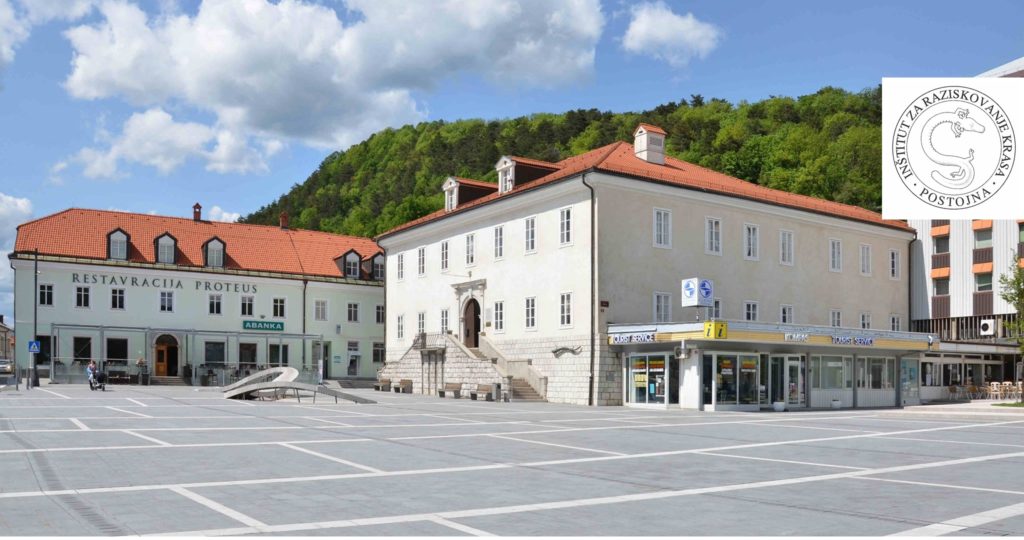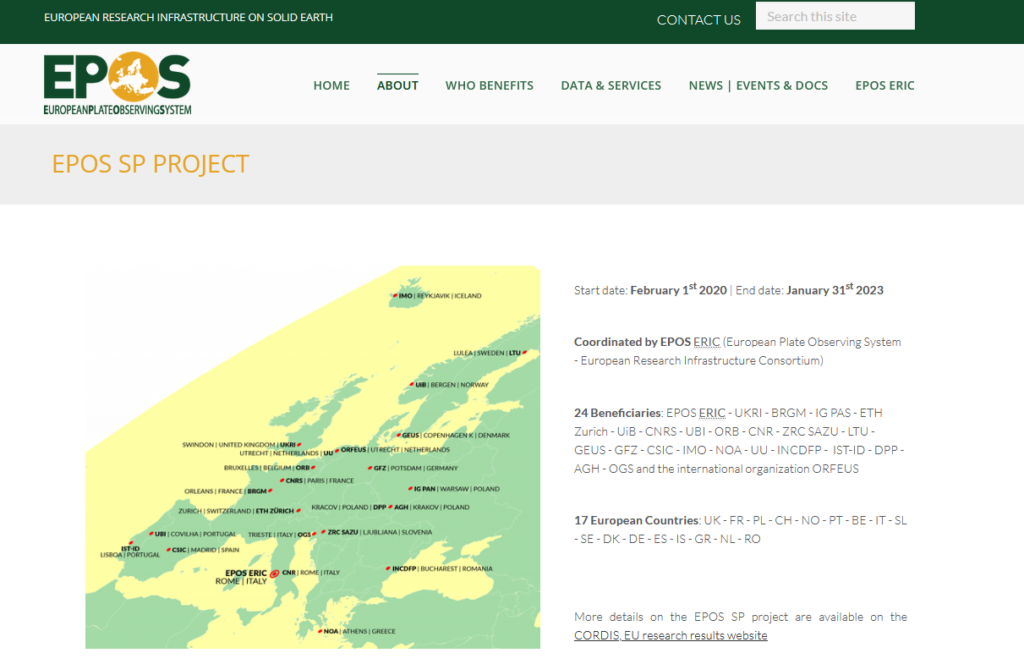Karst Research Institute ZRC SAZU
Karst Research Institute ZRC SAZU joined LifeWatch Slovenia in 2016 and it is the leading partner of the EPOS Slovenia consortium.

Contact information
Stanka Šebela, PhD
National representative for EPOS Slovenia
Karst Research Institute ZRC SAZU
Phone: +386 (05) 700 19 49
E-mail: sebela@zrc-sazu.si
Twitter: @EPOS_Slovenia
Research
The unique location in the centre of the Classical Karst and a long tradition of excellent research have made Karst Research Institute ZRC SAZU one of the top karstological centres in the world. Here, research focuses on karst and its conservation, studying its hydrology, geology, biology, geomorphology, ecology, microbiology, and speleology, as well as the history of karst science. The Institute’s researchers also come from a variety of backgrounds, thus enabling a multidisciplinary approach. Research includes numerous field studies, laboratory investigations, and numerical modelling.
Like many other well-known research institutions across Europe, the Karst Research Institute ZRC SAZU faces the same data management issues, although it still aspires to be a top research institution. The multidisciplinary profile of the institute has apparently led to data management problems in the past, with each researcher contributing his or her own contribution of data without standardization with other fields. As the national headquarters for three environmental RISs (EPOS, LifeWatch, and eLTER), the Institute started to better define its role to adopt a multidisciplinary data management plan and contribute as a trusted partner with FAIR data and services.
RI-SI-EPOS: In August 2021 the project “Development of research infrastructure for the international competitiveness of the Slovenian RRI space – RI-SI-EPOS” has finished (https://epos-ip.zrc-sazu.si/ri-si-epos/).
The project was granted by the Slovenian Ministry of Education, Science and Sport and EC – European Regional Development Fund for the four partners (ZRC SAZU – the leading partner, GeoZS, ULFGG, IJS) from EPOS Slovenia consortium to build a national network for the collection, editing, design, storage of solid Earth data in the field of seismology, geology, geodesy, and near fault observatories (NFO).
The application for RI-SI-EPOS project was possible because Slovenia was one of the founding countries of EPOS ERIC in 2018. The project was a concrete added value for the participation of Slovenian partners in the EPOS community since 2010.
The main outcome of the project was the establishment of the IZRK Metadata Portal.

The future and security of humankind dwelling on Planet Earth depend on our ability to live and cope with the complex Earth system in all its dimensions. Our ability to monitor the surface and subsurface of the Earth and to forecast catastrophic events and their impacts on society is increasingly pertinent as our society develops. Earth system processes transcend national boundaries and the European Plate Observing System (EPOS) brings the solid Earth networks in Europe into a single distributed research infrastructure. EPOS has been designed with the vision and the mission of creating a pan-European infrastructure for solid Earth science relying on novel e-science concepts to provide virtual access to data and services as well as physical access to facilities for a broad community of users.
The innovation potential of the EPOS infrastructure involves enabling the use of multidisciplinary solid Earth science data, data products and services relying on national research infrastructures distributed across the whole Europe. The overall objective of the EPOS Sustainability Phase (EPOS SP) project is to ensure the long-term sustainability of the EPOS Research Infrastructure. The EPOS SP project is timely in the EPOS RI lifecycle because it will consolidate the long-term operational perspective of EPOS ERIC and the EPOS Delivery Framework. EPOS SP is addressing all aspects of sustainability to tackle the challenge of moving from technical and financial viability to long-term sustainability.
ZRC SAZU is involved in WP2 Governance and Financial Framework (Task 2.1 Engaging National Authorities in EPOS and enlarging the EPOS ERIC membership) and in WP7 Outreach and Training (Task 7.2 Outreach on operation of EPOS services).

Publications related with both projects at Karst Research Institute ZRC SAZU
